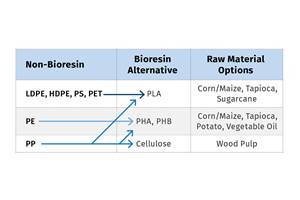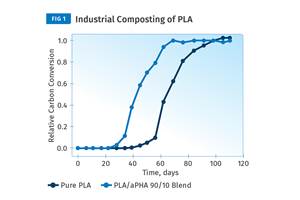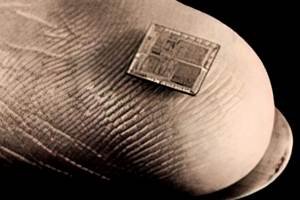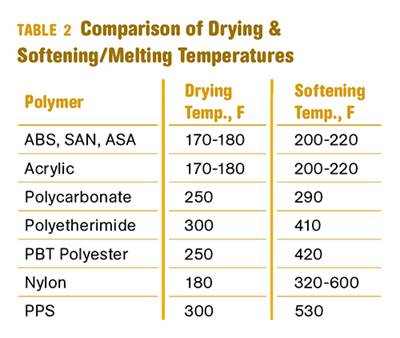MATERIALS: DSM’s Biobased Polymer Portfolio Expands with Nylon 4T Grades
Aimed at thinner and more sustainable electronic devices, the new grades boast an improved processing window.
Just two months ago, we reported that DSM Engineering Plastics, Troy, Mich., expanded its U.S. footprint by opening up a new office in San Mateo, Calif., with the primary focus of supporting the consumer electronics business. This week, the company revealed that it has expanded its range of high-temperature-resistance biobased polymers with the introduction of a new family of high-performance nylon 4T materials derived up to 60% from renewable resources.
Called ForTii Eco, the new materials are aimed at the growing trend of faster, thinner, and more sustainable devices in the electronics industry. The entire DSM plastics portfolio for the electronics market is already free of halogens and red phosphorous in materials used in cables, connectors, frames and antennas in smart devices. The two existing materials, both partially or fully derived from renewable resources, are Arnitel Eco TPE and EcoPaxx nylon 410.
Said to represent the next generation of high-temperature nylons, the new ForTii Eco grades are able to meet more stringent requirements on several fronts than has been possible even with existing ForTii grades, which already have been shown to outperform other nylons. They offer higher flow and an improved processing window, combined with high toughness and full resistance to high-temperature soldering. Competing semi-aromatic nylons such as nylon 6T and nylon 10T have lower flow and lower toughness to varying extents.
Also, these materials show low sensitivity to moisture, which ensures the retention of their outstanding mechanical and dielectric properties even in the conditioned state, according to ForTii business manager Konraad Dullaert. “As data transmission speeds continue to rise, there is a growing need for insulating materials like ForTii that have a stable dielectric constant and loss tangent to limit signal losses.”
The polymer used in the first three grades in this family—E11, E61, LDS62—is 30-60% derived from renewable resources. DSM used castor beans as the basis for its C10 chemistry that it incorporates. These halogen-free flame-retardant grades have a bio-content ranging from 10% to 25% by weight on a compound basis.
Key applications for grades E11 and E61 include surface-mount technology (SMT) connectors, the new USB-C, and audio jacks. The LDS62 grade is said to be highly suitable for antennas, RFID security casings, and switches found in many portable electronic devices.
In fact, DSM sees LDS62 as an ideal material for the production of antennas for mobile electronics, as it contains a special technology that enables incorporation of very fine and precise electrical circuitry by highly cost-effective laser direct structuring (LDS). Parts made with this material have been shown to have very good dielectrics, good-surface quality, and high mechanical robustness. The total package of properties provided with this grade is superior to any other LDS grade in a competing polymer, according to DSM.
The ForTii Eco family is being launched at Chinaplas, Shanghai, April 25-28. “This is an important development for processors because the new grades, with their improved processing characteristics, will help them reduce costs while still being able to produce parts that meet OEM requirements,” says marketing manager connectors John Hsieh. “The OEMs themselves will appreciate the marketing benefits of biobased materials, and the ability to design thinner parts.”
Search for more of DSM’s ForTii resins and nearly 100,000 grades of polymers on the Universal Selector by clicking here.
Related Content
Honda Now Exploring UBQ’s Biobased Material Made from Unsorted Household Waste
UBQ is aiming to expand its reach for more sustainable automotive parts as well as non-automotive applications.
Read MoreHow to Optimize Your Molds and Hot Runners for Processing Bioresins
Demand for bioresins is growing in molded goods, particularly as a sustainability play to replace fossil-fuel based materials, but these materials are not a drop-in replacement for traditional materials. Molds and hot runners need to be optimized for these materials.
Read MoreBlend Amorphous PHA with PLA to Improve injection Molded Part Properties
Adding aPHA to PLA can boost a range of mechanical properties and expedite composting. Here are the details as well as processing guidelines for injection molding the blends.
Read More50 Years of Headlines … Almost
I was lucky to get an early look at many of the past half-century’s exciting developments in plastics. Here’s a selection.
Read MoreRead Next
Engineering Thermoplastics Are Going ‘Green’
As high-performance materials follow the path taken by some commodity resins, farming could replace drilling as suppliers rely more on plants than oil or gas for feedstocks.
Read MorePeople 4.0 – How to Get Buy-In from Your Staff for Industry 4.0 Systems
Implementing a production monitoring system as the foundation of a ‘smart factory’ is about integrating people with new technology as much as it is about integrating machines and computers. Here are tips from a company that has gone through the process.
Read MoreWhy (and What) You Need to Dry
Other than polyolefins, almost every other polymer exhibits some level of polarity and therefore can absorb a certain amount of moisture from the atmosphere. Here’s a look at some of these materials, and what needs to be done to dry them.
Read More
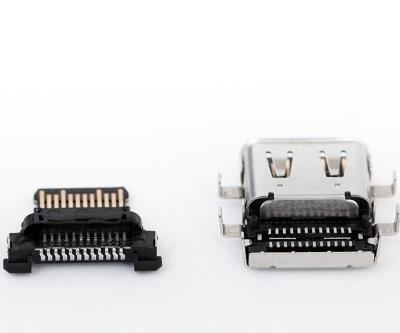









.png;maxWidth=300;quality=90)










